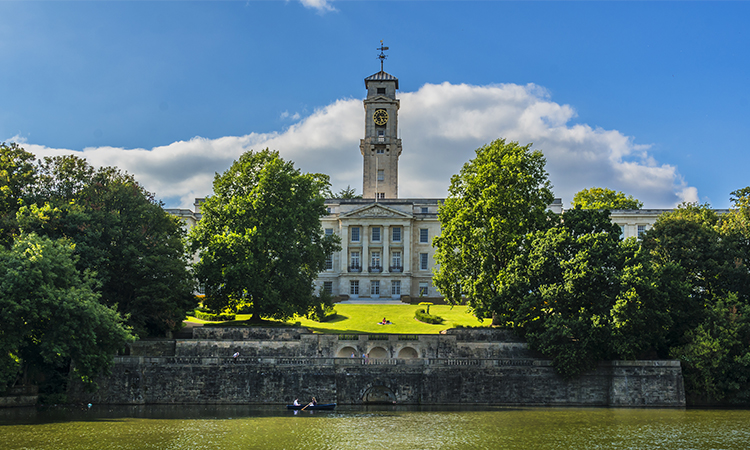University of Nottingham: Students toast success of non-alcoholic coffee liqueur with top competition prize
Food science students from the University of Nottingham have scooped the top prize in a national competition for food innovation, with a non-alcoholic liqueur made from coffee waste.
The ‘Econauts’ team won first place at Ecotrophelia UK with their Libero luxury non-alcoholic liqueur. Working with industry partner Hogg Norton, the team developed their product to provide the same mouthfeel, ‘burn’ and some physiological effects to mimic those after dinner cocktails.
The product aims to be as sustainable as possible – from the location of the factory to the paper wrap and reusable glass bottle – and is unique in its ability to foam and its likeness to alcohol through use of active ingredients to create the burn of alcohol and added physiological effects.
Ecotrophelia UK is a ‘Dragons Den’ style competition that challenges teams of UK students to develop an innovative, eco-friendly food and drink product. From idea generation through to the final packaged product, the teams get a hands-on experience of what it takes to bring an eco-friendly food or drink product to market.
Alongside producing the actual product, the team had to devise a business and marketing plan and design the packaging. With support from the University’s Food Science academics and UoN Research and Innovation teams they were able to create their winning proposition.
The teams pitched their ideas to judges from top names in the food and drink industry including Marks and Spencer, Coca-Cola, Unilever, PepsiCo, Mondelez, Nestle, Warburtons, Tesco, Food Manufacture, Institute of Food Science and Technology (IFST) and Campden BRI.
The University of Nottingham team will go on to compete against 19 other national teams from across Europe for the chance to win up to €4,000 at the Ecotrophelia 2021 European final.
The winning team was Aila Khan (Food Science & Nutrition), Bethan Roberts (Food Science & Nutrition), Jemima Willgoss (Food Science), Kirsty More (Food Science & Nutrition), Thomas Hunt (Food Science).
Developing this product has really tested our skills and knowledge and we have had to be flexible and change direction from our original idea of a ready drink can to the non-alcoholic liqueur. We are thrilled to have won the competition. It means so much to have had the opportunity to share our product with the judges and are delighted to see that they love it as much as we do! We are really looking forward to the challenge of the European final and can’t wait to see what the other teams have been developing.
Econauts team member and Food Science student, Jemima Willgoss
Gleb Yakubov, Assistant Professor in Food Composites said: “We’re delighted to see the Econauts’ dedication, hard work, independence rewarded, particularly as they developed their entry with minimal input from supervisors and advisors. They displayed a great deal of resilience operating in tough circumstances and showed great teamwork.
Econauts have skilfully utilised their in-depth knowledge of food chemistry, food physics and consumer behaviour and combined the insights from these different disciplines to create a unique product with unique consumer proposition, market potential and sustainability credentials. Their success sets a new bar for everyone engaged in Ecotrophelia process and I hope they will have a chance to take this concept forward and we wish them all the best and future successes in the next rounds of Ecotrophelia competition.”

